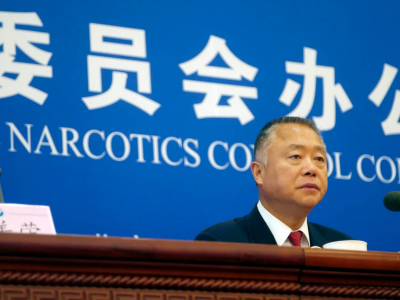The Washington Post-US China officials to meet on curbing fentanyl supply
January 28, 2024 4 min 771 words
这次美中官员会晤是缓解合成毒品危机的积极信号。自2023年11月习近平主席和拜登总统在旧金山达成协议以来,这是首次高层会晤,旨在打击芬太尼及其他合成毒品对美国用户的威胁。会议讨论了阻止中国化学品流向制毒团伙的方法,包括改进追踪和标记。虽然中国已于2019年禁止芬太尼销售,但仍然是芬太尼前体的最大生产国,这些化学品流向墨西哥等地,最终制造出合成毒品进入美国。中美官员在此问题上的合作,是两国关系回暖的一部分。然而,问题根源及责任仍存争议,中美应携手努力,通过有效合作来解决共同面临的毒品问题,而非互相指责。
2024-01-28T19:24:44.509Z
United States and Chinese officials will meet in Beijing on Tuesday, convening a working group designed to crack down on the flow of fentanyl and other synthetic drugs targeting U.S. users.
It is the first such high-level meeting of U.S. and Chinese officials since a breakthrough agreement between President Biden and Chinese President Xi Jinping in San Francisco in November when the two leaders pledged to restart counternarcotics cooperation.
A delegation including officials from the U.S. Drug Enforcement Administration and Justice, Homeland Security, State and Treasury departments will meet to discuss methods to stamp out the shipment of Chinese chemicals used to make fentanyl — called precursors — to drug cartels abroad, including improvements in tracking and labeling.
The meeting marks a step forward in a process that began in November, when — in a show of good faith — Beijing opened lines of communication with the United States on counternarcotics trafficking following years of relative silence, and issued warnings to Chinese chemical makers.
It is a “really critical and pivotal moment for our direct committee implementation on this issue,” said a senior White House administration official on Sunday. “It is a platform for ongoing coordination to support concrete enforcement actions with the goal of countering the evolving threat of synthetic drugs,” the official said.
China vows to crack down on fentanyl chemicals. The impact is unclear.
Beijing banned the sale of fentanyl in 2019, effectively ending shipments of the drug directly to the United States from Chinese suppliers. However, Chinese companies are still among the largest manufacturers of fentanyl precursors. These chemicals are still sold to third-party markets, including Mexico, where they are used to manufacture synthetic drugs smuggled into the United States.
The role of Chinese precursors has been divisive between officials in Beijing and Washington. Some U.S. lawmakers have blamed Beijing for the roughly 100,000 annual U.S. deaths a year linked to fentanyl abuse. In return, officials in Beijing have laid the blame on the United States for failing to control the epidemic at home.
“The U.S. itself is the root cause of its drug problems,” said foreign ministry spokesman Wang Wenbin in response to U.S. government sanctions on Chinese precursor manufacturers in April 2023. “It is the importer’s duty to prevent such chemicals from falling into the hands of illicit drugmakers,” he said.
The Chinese embassy in Washington did not immediately respond to a request for comment on Sunday.
Despite that friction, the senior U.S. administration official on Sunday said the resumption of communication since November has already led to significant breakthroughs in disrupting the supply of fentanyl precursors to the United States. The official claimed a drop in seizures as proof of the dwindling supply.
“We have information that the PRC started taking action against Chinese synthetic drug and chemical precursor suppliers right around the time of the summit. And, in the following month, we saw companies shut down and saw international accounts blocked,” the official said, adding they believed it was the first such legal enforcement action by Beijing since 2017.
U.S. charges Chinese companies, executives with fentanyl crimes
The official also said that Beijing in November submitted 145 drug-related incidents to the International Narcotics Control Board Database — a tool used to share information internationally about suspected trafficking activity — the first time since 2017 that the Chinese government had done so.
In November, Beijing also issued a public notice, warning domestic producers of more than 50 precursors that they face potential legal action in sending the chemicals abroad. They also warned of possible “entrapment” by foreign authorities and said exporters should exercise caution when shipping items to countries including the United States and Mexico.
The U.S. senior administration official compared the notice on precursors to a similar one issued in 2019, which was followed by a near-complete drop off in seizures of fentanyl shipped directly from China to the United States.
“Our expectation is that we’ll start to see the same happen in this precursor chemical industry as well,” the official said. Beijing is also in discussions with Mexico on the issue, the official added.
The resumption of cooperation on counternarcotics comes amid a relative warming in U.S.-China relations, following a period of intense friction marked by covid-origin claims, near-clashes between ships and warplanes in the South China Sea and the spat over a Chinese spy balloon that traversed the United States early last year. In December, the two countries’ top military officials finally reopened key lines of communication.

